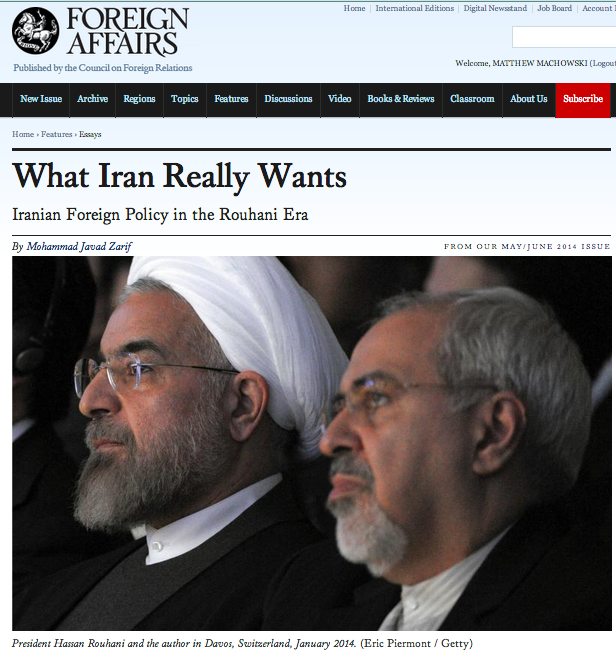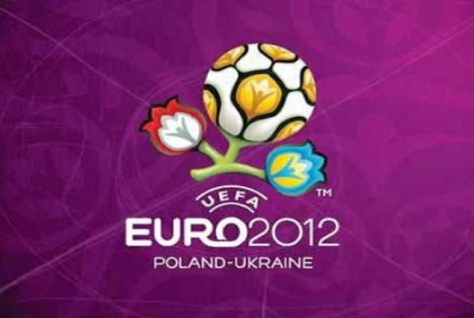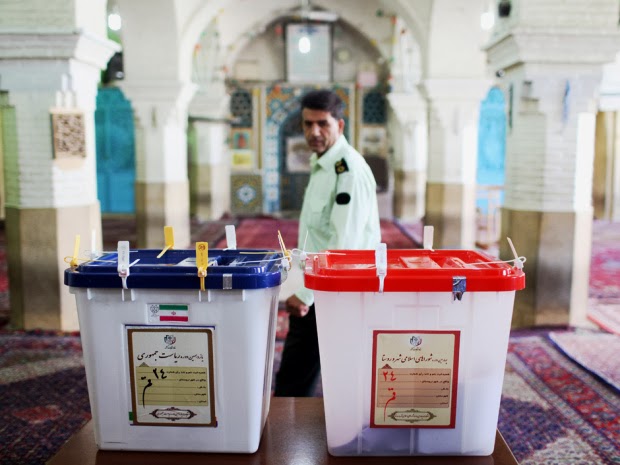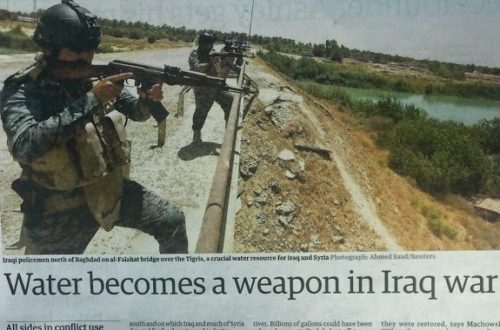Javad Zarif & Iran’s foreign policy under Hassan Rouhani
Javad Zarif and Hassan Rouhani – Iran’s Foreign Minister and President respectively – pay great attention to widely publicising the details of their foreign policy. Their unprecedented Twitter presence is a clear example of the new administration’s wish for greater international transparency and public diplomacy.
Another such effort came earlier this month in the form of a Foreign Affairs op-ed by Javad Zarif; a piece both highly informative and expertly written. It certainly joins the list of must-read articles for anyone interested in understanding both the intellectual drivers of the current administration of Hassan Rouhani and the major concepts underlining Iran’s present-day effort to end the ‘nuclear crisis’.

Javad Zarif, in a truly Iranian fashion, begins his essay by anchoring it in the basic tenets of Iran’s post-revolutionary foreign policy, which according to Zarif is:
“based on a number of cherished ideals and objectives embedded in the country’s constitution. These include the preservation of Iran’s independence, territorial integrity, and national security and the achievement of long-term, sustainable national development. Beyond its borders, Iran seeks to enhance its regional and global stature; to promote its ideals, including Islamic democracy; to expand its bilateral and multilateral relations, particularly with neighbouring Muslim-majority countries and nonaligned states; to reduce tensions and manage disagreements with other states; to foster peace and security at both the regional and the international levels through positive engagement; and to promote international understanding through dialogue and cultural interaction.“
Interestingly, Zarif goes to relatively great lengths in outlining his own understanding of the current post-Cold War, post-American unilateralist international system. He cleverly refers to the, by now, out-dated paradigms of Francis Fukuyama’s ‘end of history’ and Samuel Huntington’s ‘clash of civilisation’. Unsurprisingly, he considers those theories as deeply Islamophobic, and by extension potentially anti-Iranian.
“During the late 1980s and early 1990s, the emergence in the United States of apocalyptic theories declaring “the end of history” or a “clash of civilizations” represented a hasty reaction to the enemy vacuum created by the end of the Cold War and to the rising status of Muslims on the global stage. Through a series of subsequent Islamophobic campaigns — sometimes promoted as official state policy and perpetuated systematically in various forms and guises — some in the West tried to depict the Islamic community as a new ideological enemy on a global scale.”
Reminiscent of some more liberalist IR theories, Iran’s Foreign Minister advocates an international community of multilateralism, “collective action,” and “willful cooperation”. One can decipher here some subtle post-colonial influences and Zarif’s references to historic Khomeini’s opposition to the US domination of Iran.
“Collective action and cooperation have become the hallmarks of the era. Multilateralism, the collective search for common solutions to common problems, has proved its desirability and practical efficacy at both the regional and the global levels. … Wilful cooperation has gradually developed as a new working pattern of interaction among states; it has come to replace the once predominant and now discredited pattern of confrontation, unconditional subservience, and perpetual rivalry.”
In an effort to further stress his belief in international cooperation, or perhaps to delegitimise the more hawkish factions among the American Congress, or indeed the Israeli war-hungry administration of Benyamin Netanyahu, Zarif supports his idea of multilateralism by referring to today’s world powers as being apparently “loath to use military means to resolve rivalries.”
“China, India, and Russia are engaged in intense competition, primarily with the Western bloc, in a concerted effort to secure more prominent global roles. However, major powers and emerging powers alike are now loath to use military means to resolve rivalries, differences, or even disputes. This has led to the gradual rise of a revisionist approach to foreign policy. Nation-states, regardless of their current position and power, now seek to enhance their stature and achieve their goals through a carefully balanced combination of cooperation and competition.”
Despite his revolutionary credentials and clear support for the basic tenets of the Islamic Republic, Javad Zarif recognises that although largely popular, the Islamic Revolution of 1979 destroyed its political standing overseas and led to Iran becoming essentially a pariah state.
“The victory of the 1979 revolution, a popular, nationwide, antimonarchical uprising with a mixture of republican and Islamic traits, contributed to the establishment of a new revolutionary order in the country. The repercussions were drastic, and the revolution deeply affected the country’s foreign relations, not only in its immediate neighbourhood but also throughout the greater Middle East and in the rest of the world.”
It is precisely the process of relieving both the decades-long international isolation and the unprecedented international sanctions regime against Iran that is now perceived as the cornerstone of Iran’s foreign policy. In a move to secure a more amicable relationship with the outside world, Rouhani’s administration chooses to even downgrade the importance of domestic politics and popular ideological anti-Western sentiments, thus risking potentially alienating itself from the more hard-line factions in Iran.
Rouhani cannot, however, be considered a true reformist. The preferred determination of his political ideology is that of “prudent moderation”, clearly contrasted with Mahmoud Ahmadinejad’s highly ideological policy of confrontation with the West.
“His political platform of prudent moderation and hope represented a significant turning point in Iranian politics. … Rouhani’s foreign policy platform was based on a principled, sober, and wise critique of the conduct of foreign relations during the preceding eight years under the previous administration. … The changes he proposed demonstrated a realistic understanding of the contemporary international order, the current external challenges facing the Islamic Republic, and what it will take to restore Iran’s relations with the world to a state of normalcy. Rouhani also called for a discourse of “prudent moderation.” … Prudent moderation is an approach based on realism, self-confidence, realistic idealism, and constructive engagement. Realism requires an understanding of the nature, structure, mechanisms, and power dynamics of the international system and of the potential and limits of its institutions. Rouhani’s moderation brings together a profound conviction in the cherished ideals of the Islamic Revolution with an objective evaluation of Iran’s actual capacities, capabilities, and constraints. It demands a deliberate aversion to actions that are insulting, condescending, or self-aggrandizing. … It values accountability, transparency, and honesty in dealing with the populace and implies a willingness to reform and improve existing policies. Rouhani’s approach entails a delicate balancing act: between national, regional, and global needs, on the one hand, and the available means, instruments, and policies, on the other; between persistence and flexibility in foreign policy; between goals and means; and among various instruments of power in a dynamically changing world. Finally, Rouhani’s commitment to constructive engagement requires dialogue and interaction with other nations on an equal footing, with mutual respect, and in the service of shared interests. It requires that all participants make serious efforts to reduce tensions, build confidence, and achieve détente.”
“Dignity, rationality, and prudence” are the core principles of the administration’s effort to strengthen Iran’s role in the multilateral international system. A system that, according to Zarif, is still ridden by oppression and “Zionist encroachments in the Muslim world.” His reference to spreading “Iranian-Islamic culture … and Islamic democracy as a form of governance” uncomfortably reminds, albeit perhaps only rhetorically, of the earlier revolutionary ideals of exporting the revolution that dominated Iran’s foreign and defence policy of the 1980s.
“Iran’s policies will be guided by the principles of dignity, rationality, and prudence. … Iran will expand and deepen its bilateral and multilateral relations through meaningful engagement. … Multilateralism will play a central role in Iran’s external relations. … to promote Iranian-Islamic culture, the Persian language, Islamic values, and Islamic democracy as a form of governance. Third, Iran will continue to support the cause of oppressed people across the world, especially in Palestine, and will continue its principled rejection of Zionist encroachments in the Muslim world.”
Finally, such a direct explication of Iran’s foreign policy under Rouhani would not be complete without an all-out denial of Iran’s alleged desire for a nuclear arsenal. It is certainly reassuring to know that as far as Iran is concerned the current P5+1 negotiations apparently face no “insurmountable barriers”. It is, however, easier said than done, and the next two months will undoubtedly provide a real-time check of Zarif and Rouhani’s sincerity.
“The top priority is to diffuse and ultimately defeat the international anti-Iranian campaign, spearheaded by Israel and its American benefactors, who seek to “securitize” Iran — that is, to delegitimize the Islamic Republic by portraying it as a threat to the global order. … Iran has no interest in nuclear weapons and is convinced that such weapons would not enhance its security. Iran does not have the means to engage in nuclear deterrence — directly or through proxies — against its adversaries. Furthermore, the Iranian government believes that even a perception that Iran is seeking nuclear weapons is detrimental to the country’s security and to its regional role, since attempts by Iran to gain strategic superiority in the Persian Gulf would inevitably provoke responses that would diminish Iran’s conventional military advantage. Therefore, the on-going negotiations over the nuclear issue face no insurmountable barriers.”




